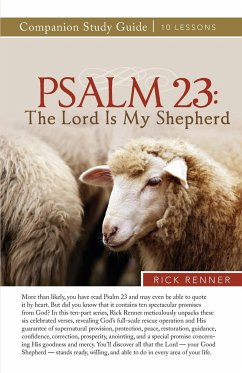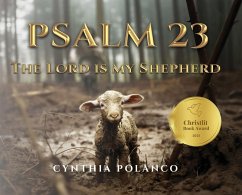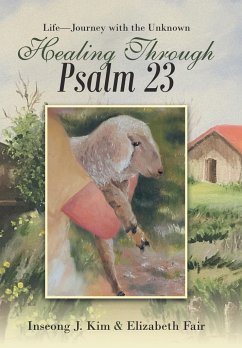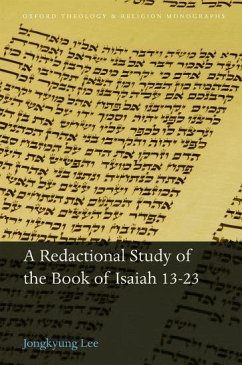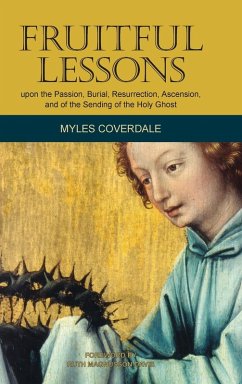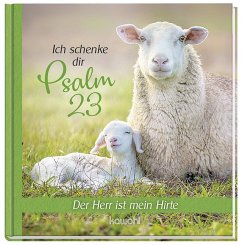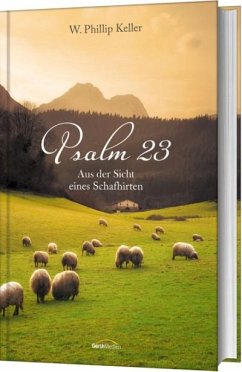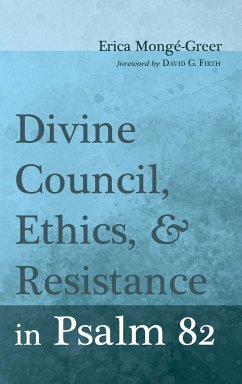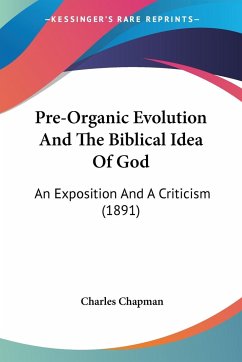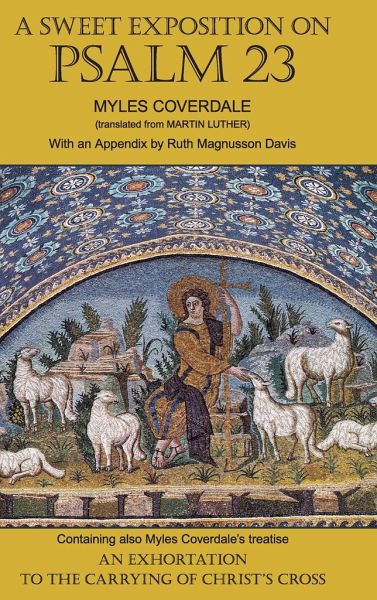
A Sweet Exposition on Psalm 23
with also An Exhortation to the Carrying of Christ's Cross

PAYBACK Punkte
10 °P sammeln!
Myles Coverdale translated this essay from Martin Luther in 1537. Poetic and profound, Luther expounded Psalm 23 in accordance with now-forgotten but centuries-old understanding that it was written about the word of God. Coverdale wrote, "In this psalm doth David and every Christian heart give thanks and praise unto God for his most principal benefit, namely, for the preaching of his dear and holy word... [he] calleth it goodly pleasant green grass, fresh water, the right way, a staff, a sheep-hook, a table, balm, or pleasant oil, and a cup that is always full." Baruch House is now giving this...
Myles Coverdale translated this essay from Martin Luther in 1537. Poetic and profound, Luther expounded Psalm 23 in accordance with now-forgotten but centuries-old understanding that it was written about the word of God. Coverdale wrote, "In this psalm doth David and every Christian heart give thanks and praise unto God for his most principal benefit, namely, for the preaching of his dear and holy word... [he] calleth it goodly pleasant green grass, fresh water, the right way, a staff, a sheep-hook, a table, balm, or pleasant oil, and a cup that is always full." Baruch House is now giving this work back to the world in modern spelling, to recover the lost interpretation of Psalm 23. The Appendix by R. M. Davis shows how the loss of the traditional interpretation began with John Calvin's commentary on Psalm 23. Calvin rather shockingly taught that David's riches and honours were "ladders to God." He said nothing about God's word. Then the Geneva Bible changed Psalm 23 to refer to resting in pastures beside still waters, instead of feeding in a pasture with refreshing water, as it was in the Matthew Bible (and the other early English Bibles). Also, the new notes in the Geneva Bible said nothing about God's word. Later Bibles followed the Geneva translation of Psalm 23, and thus the ancient understanding was lost. The Appendix compares the translation and notes of the Matthew Bible with those of the Geneva version so that people can see the changes for themselves. As well, Calvin's full commentary is attached. Included also in this volume is Coverdale's essay, "An Exhortation to the Carrying of Christ's Cross." He wrote it shortly after Queen Mary ascended the throne in England, to strengthen believers against her persecutions. It is timely today, where Christianity is coming under attack.





